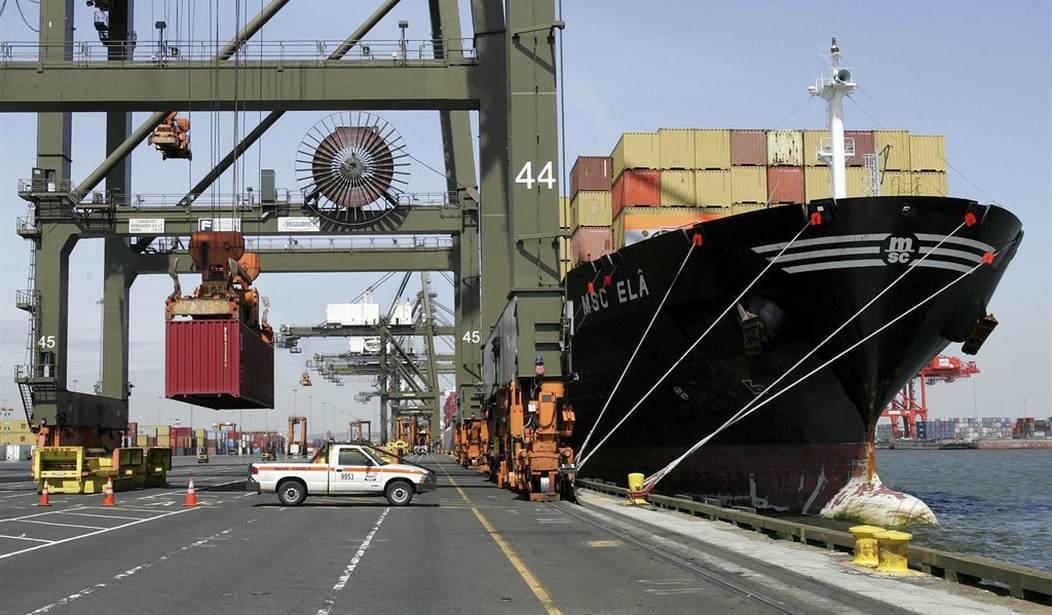First, the good news. After just a couple of days, ports on the East Coast will open up again to full capacity. The International Longshoremen's Association has reached a tentative agreement with the US Maritime Alliance to end a strike, after the latter sweetened its offer on wages to split the difference with the union.
What's the bad news? The strike is merely suspended:
U.S. ports reopened after dockworkers agreed to return to work, ending a three-day strike that threatened to disrupt the American economy just weeks ahead of the presidential election.
The breakthrough Thursday came after port employers offered a 62% increase in wages over six years, according to people familiar with the matter. ...
The new offer, up from an earlier proposed raise of 50%, came after the White House privately and publicly pressed the large shipping lines and cargo terminal operators who employ the longshore workers to make a new offer to the union.
The White House put pressure on to get ports reopened before the strike did noticeable economic damage. The union wanted a 77% increase in wages, so the 62% is pretty close to an even split between the positions between management and labor.
So what's the problem? Wages were only part of the dispute between ILA and USMX. The other issue -- and in many ways, the more contentious issue -- has to do with automation. West Coast ports have already either largely or fully automated the work done previously by longshoremen. In fact, hardball wage demands, including the no-work guarantees of pay in the ILA's current contract, drove costs high enough to make automation a more economic option for shipping companies.
USMX may well have offered the higher wages as a tactical move in order to hold tough on their options to automate those jobs out of existence later. ILA president Harold Daggett could have won the battle but lost the war, although the battle over automation in the labor contract will continue while ports are operating.
So when will the next strike come? At a very interesting time, thanks to the deal crafted by the White House:
The Maritime Alliance increased its offer amid public pressure from the Biden administration to put forward a contract offering higher wages.
The tentative agreement does not resolve differences between the union and shipping companies over the use of automated machinery, sources said. That will be a key focus of negotiations between both sides from now until January 15.
Well, my my my. How coincidental is this date? In one fell swoop, Joe Biden and his team not only pushed USMX into increasing the costs of dock labor to end this strike before the election, they also kicked the can down the road long enough to make it a problem for the next president.
This kind of cuts in both directions, too. Obviously, Biden and Kamala Harris needed to deliver for union members while not impacting consumers with shortages and higher prices in the days before an election. But now Biden can wash his hands of the automation issue, and so can Harris if she loses the election. The suspension leaves a stinky turd for Donald Trump if he wins just as he's about to take office, assuming that ILA and USMX can't settle on automation restrictions. And the rapid increase in labor costs built into the wage agreement over the next six years will incentivize USMX to expand automation as much as possible, so don't expect this to get settled without another strike during Inauguration Week.







Join the conversation as a VIP Member